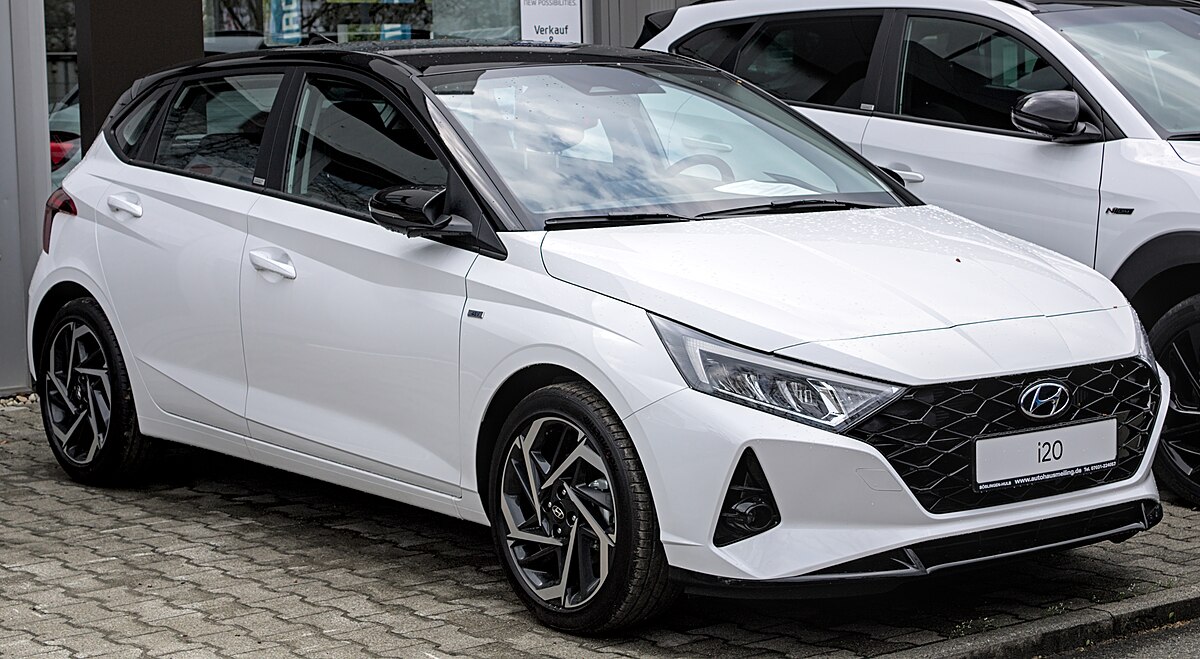When considering the purchase of a car, safety is a factor to keep in mind. Hyundai recognises the importance of safety and has taken measures to prioritise it in the Hyundai i20 model without sacrificing other important features. This article explores the Hyundai i20’s safety features, specifically highlighting the Anti-Braking System (ABS) and Electronic Brake-force Distribution (EBD) technology.
Safety Features of Hyundai i20
The goal of the Hyundai i20 is to ensure that both you and your passengers are safe on the road. Here are some key Hyundai i20 safety features that set this car apart:
- 6 Airbags for Enhanced Protection: The Hyundai i20 has six airbags, including side and curtain airbags. This comprehensive airbag setup offers protection in case of a collision, guaranteeing all occupants’ safety.
- Electronic Stability Control (ESC) and Vehicle Stability Management (VSM): ESC aids in maintaining control over the vehicle during manoeuvres or slippery road conditions. VSM collaborates with ESC to ensure the car remains stable in challenging road conditions. These combined features contribute to a secure driving experience.
- Emergency Stop Signal (ESS): During braking, the Emergency Stop Signal (ESS) quickly activates the brake lights to alert drivers behind you, reducing the chances of rear-end collisions and making roads safer for everyone.
- Anti-lock Braking System (ABS) with Electronic Brake Force Distribution (EBD): ABS prevents wheel lock-up during braking, allowing the driver to steer effectively. EBD then distributes braking force between rear wheels based on load, ensuring braking performance in various conditions. This duo significantly enhances the Hyundai i20’s braking efficiency and stability.
Understanding ABS & EBD Technology
ABS technology is designed to prevent wheel lock-up during emergency stops. It helps drivers maintain steering control to avoid obstacles and accidents by pulsing brake pressure during skidding wheel rotation.
Complementing ABS EBD regulates brake force across wheels based on load and road conditions for distribution. This optimisation enhances braking effectiveness and reduces stopping distances on uneven or slippery surfaces.
ABS and EBD work together to enhance the Hyundai i20’s safety by improving control and stability when braking in situations where quick and efficient braking can be crucial.
Hyundai i20 Car Price
One key attraction of the Hyundai i20 is its safety features, but they come at a cost. The Hyundai i20 car price aims to deliver value for money, making it accessible to a range of customers. With its combination of safety, performance, and affordability, the Hyundai i20 proves to be an option for those seeking a secure vehicle.
Conclusion
The Hyundai i20 distinguishes itself in the hatchback market by prioritising safety. Equipped with ABS and EBD technology, as well as other sophisticated safety features like ESC, VSM, and multiple airbags, it ensures that both you and your passengers are well protected on the road. The attractive Hyundai i20 car price adds to its appeal by providing a trustworthy driving experience without straining your budget.
When contemplating a vehicle purchase, consider the Hyundai i20 not only for its attractive design and performance but also for the peace of mind offered by its robust safety measures. When you’re behind the wheel of a Hyundai i20, it’s more than a vehicle. It’s a secure partner prioritising safety during every ride.



